.
 Can was an experimental rock band formed in Cologne, West Germany in 1968, with Malcolm Mooney on vocals and David Johnson, an American flautist and electronic composer, who quickly departed the scene. They recorded and privately distributed Monster Movie before Mooney was taken ill and replaced by Kenji 'Damo' Suzuki, who had been discovered by Bassist Holger Czukay busking outside a cafe in Munich. He introduced himself as a member of an experimental rock band and invited Suzuki to join them. That evening, Suzuki performed with the band at the Blow Up club and subsequently became a member of Can.
Can was an experimental rock band formed in Cologne, West Germany in 1968, with Malcolm Mooney on vocals and David Johnson, an American flautist and electronic composer, who quickly departed the scene. They recorded and privately distributed Monster Movie before Mooney was taken ill and replaced by Kenji 'Damo' Suzuki, who had been discovered by Bassist Holger Czukay busking outside a cafe in Munich. He introduced himself as a member of an experimental rock band and invited Suzuki to join them. That evening, Suzuki performed with the band at the Blow Up club and subsequently became a member of Can.Later labeled as one of the first "krautrock" groups, they transcended mainstream influences and incorporated strong minimalist and world music elements into their often psychedelic music. Can constructed their music largely through free improvisation and editing, which bassist Holger Czukay referred to as "instant compositions". Their sparse style, based on repeated rhythmic figures and simple harmonies, was employed as basis of long hypnotic improvisations, several of which can be found on this featured album, Tago Mago.
.
 Tago Mago was recorded in 1971 by Czukay in a castle near Cologne called Schloss Nörvenich. The band were allowed to stay there for a year without paying any rent by the owner, an art collector named Mr. Vohwinkel.
Tago Mago was recorded in 1971 by Czukay in a castle near Cologne called Schloss Nörvenich. The band were allowed to stay there for a year without paying any rent by the owner, an art collector named Mr. Vohwinkel.The album was inspired by sorcerer Aleister Crowley which is reflected through the dark sound of the album as well as being named after Isla de Tagomago, an island which features in the Crowley legend. Czukay reflects that the album was "an attempt in achieving a mystery musical world from light to darkness and return". The group has referred to the album as their "magic record" and I personally agree - it is my favourite avante-garde LP.
This was the first of Can's albums to be made from not only regularly recorded music, but combined "in-between-recordings", where Czukay secretly recorded the musicians jamming while waiting for various technical problems to be resolved. Czukay would edit these long, disorganized jams into structured songs. Recording was completed in three months.
Julian Cope wrote in Krautrocksampler that Tago Mago "sounds only like itself, like no-one before or after", and described the lyrics as delving "below into the Unconscious".

Tago Mago finds Can changing to a jazzier and more experimental sound than previous recordings, with longer instrumental interludes and less vocals; this shift was caused by the dramatic difference between Suzuki and the band's more dominant ex-singer Mooney. Can took sonic inspiration from sources as diverse as jazz musicians such as Miles Davis and from electronic avant-garde music.
.
The album opens with what is basically a three song suite of "Paperhouse," "Mushroom," and "Oh Yeah." While the band is uniformly strong, pretty much the entire first LP is a showcase for drummer Jaki Leibezeit. By this point he takes his place as one of the very best drummers in rock. The CD reissue liner notes speak of "Paperhouse" taking off and levitating, and for once this is not hyperbole. Leibezeit along with Karoli's percolating rhythm and some interstellar stabs from Schmidt's keys make the song really take off, glide above the ground, pick up speed, and slam into "Mushroom." The groove here is so infectious that the Flaming Lips would pretty much rip off the song wholesale twenty years later on their track "Take Meta Mars." Suzuki mumbles right through these songs glorious, stumbling gleefully through languages and gibberish and ranting about peeing off a bridge in Japanese (at least that how my wife translates it). By "Oh, Yeah," Damo gets the chance to emote backwards and does a damn successful job of it. It doesn't hurt that Holger Czukay and Leibzeit accompany him at their metronomic best as Karoli and Schmmidt provide aural window dressing.
"Halleluwah" (the stand out track in my opinion) takes up the entire second side at almost 19 minutes but never gets boring despite its epic length. Leibezeit manages about the most complicated beat that I imagine you could play in 4/4 time and the song still manages to be the funkiest track that anyone from Germany has ever produced. Our majestic moment her occurs when the beat briefly drops out, with the band shortly plunging back in at full lurch. "Halleluwah" might be a tiny notch below "Mother Sky" from Soundtracks, but being second to that track is still nothing to sneeze at.
"Oh Yeah" and "Halleluhwah" contain the elements that have been referred to as Can's "trademark" sound: "Damo Suzuki's vocals, which shift from soft mumbles to aggressive outbursts without warning; Jaki Liebezeit's mantric drumming; Holger Czukay's production manipulations (e.g. the backwards vocals and opening sound effects on 'Oh Yeah')." Both "Oh Yeah" and "Halleluhwah" emphasize repetitive grooves.
 The second LP features Can's more avant-garde efforts, with Roni Sarig, author of The Secret History of Rock calling it "as close as it ever got to avant-garde noise music." There are lots of interesting ideas present but the band's modern compositional tendencies come to the fore and as good as these guys are, they're not Gyorgy Legiti or Steve Reich. "Aumgn" creates some soundscapes that would make for some great music to go along with Captain Kirk and Spock on the exploration of a new styrofoam planet, with lots of oscillated tones and Suzuki's delayed and reverbed mutterings before Leibzeit comes back in on the last few minutes to give another great demonstration of his drumming prowess.
The second LP features Can's more avant-garde efforts, with Roni Sarig, author of The Secret History of Rock calling it "as close as it ever got to avant-garde noise music." There are lots of interesting ideas present but the band's modern compositional tendencies come to the fore and as good as these guys are, they're not Gyorgy Legiti or Steve Reich. "Aumgn" creates some soundscapes that would make for some great music to go along with Captain Kirk and Spock on the exploration of a new styrofoam planet, with lots of oscillated tones and Suzuki's delayed and reverbed mutterings before Leibzeit comes back in on the last few minutes to give another great demonstration of his drumming prowess. "Peking O" unfortunately drops Leibezeit's drumming, but Suzuki sounds creepier than hell and I love the moment where it sounds like he literally snaps and starts spewing forth high-speed gibberish. In fact the only thing here that resembles a song is the closing "Bring Me Coffee Or Tea," which is sort of like an after dinner mint.
"Peking O" unfortunately drops Leibezeit's drumming, but Suzuki sounds creepier than hell and I love the moment where it sounds like he literally snaps and starts spewing forth high-speed gibberish. In fact the only thing here that resembles a song is the closing "Bring Me Coffee Or Tea," which is sort of like an after dinner mint.Can's magnum opus may be a little impenetrable at times, but it's worth the effort. If you're new to the band, I'd spend some time with the more immediate first half before delving into the mysterious din of "Amugn" or "Peking O."
.
The rip was taken from remastered CD in MP3 format (320kps) and includes both the UK/Australian artwork (as depicted in post) and the more common orange cover artwork released in the states. Select photos of the band are also included (sourced from the official Can website spoonrecords with thanks)
.
Track Listing01 - Paperhouse
02 - Mushroom
03 - Oh Yeah
04 - Halleluhwah
05 - Aumgn
06 - Peking O
07 - Bring Me Coffee Or Tea
.
Band Members:
Damo Suzuki (vocals)
Holger Czukay (bass guitar, sound engineer, electronics)
Michael Karoli (guitar, vocals, violin)
Jaki Liebezeit (drums, percussion)
Irmin Schmidt (keyboards, vocals)
.
Can Link (165Mb) New Link 8/11/2022
.


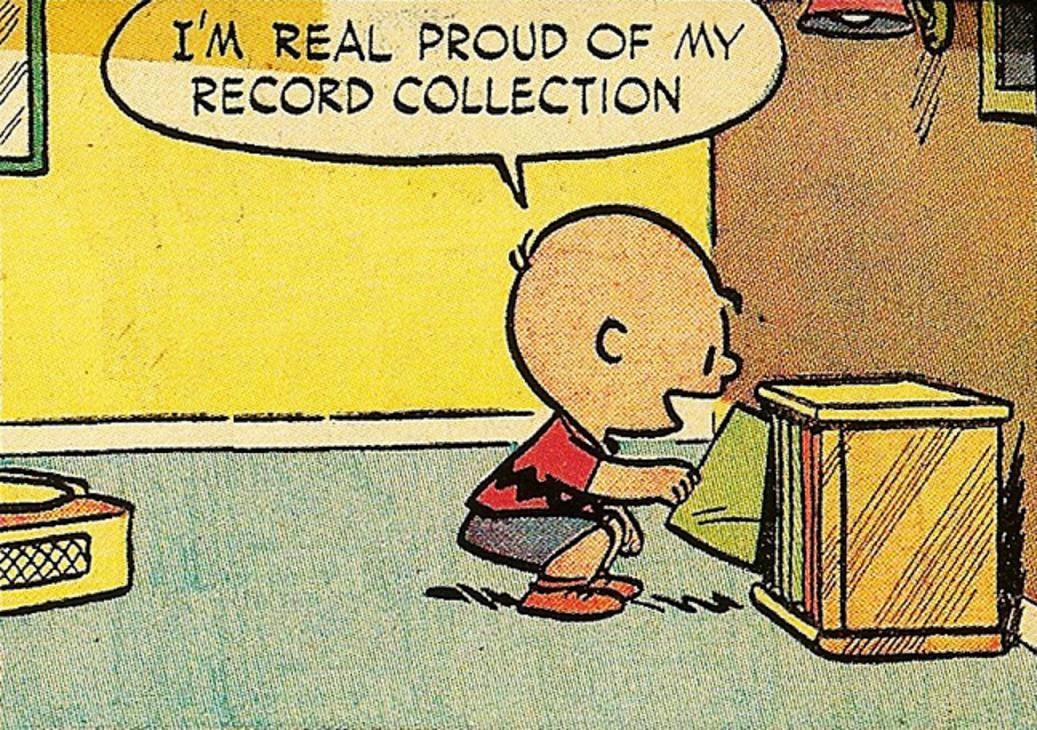

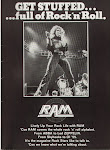
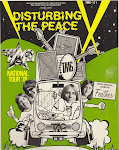
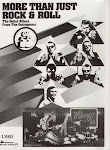
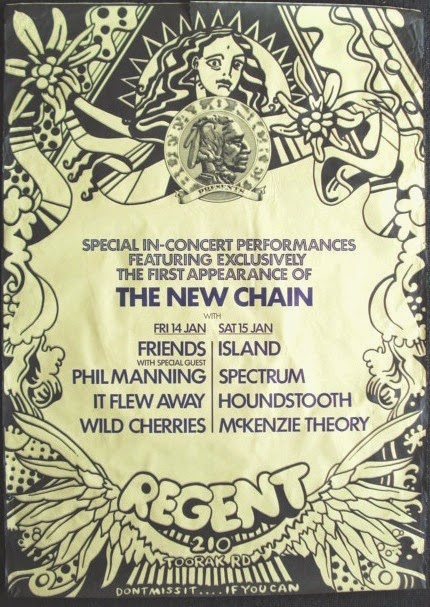










Thanks maaan! :D
ReplyDeletePerfect, dude!
ReplyDeletethanks, to you and to can.
ReplyDelete